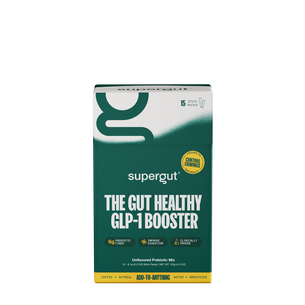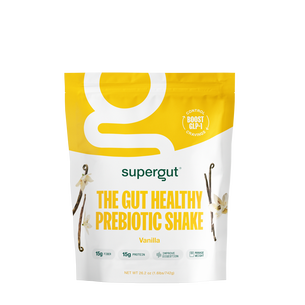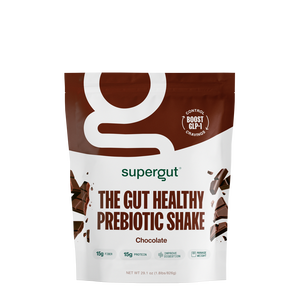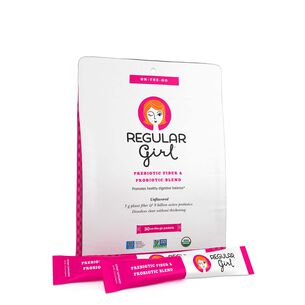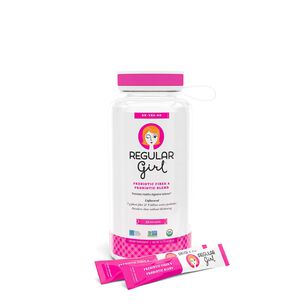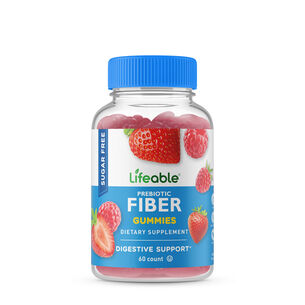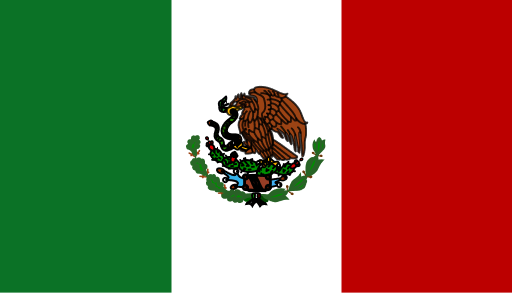The International Scientific Association of Probiotics and Prebiotics (ISAPP) defined prebiotic as a fermented ingredient that causes specific composition or activity changes of the gastrointestinal microbiota, providing benefit(s) to the host’s health (1). Many prebiotics are carbohydrates (many being fiber) but there are some non carbohydrate sources of prebiotics, such as cocoa flavanols. Prebiotics feed the good bacteria in the gut allowing for a healthy balanced ecosystem. Prebiotics allows for the bacteria in the gut to produce by-products that are nutrition for colon cells. Some of these by-products include short chain fatty acids which are beneficial. Galacto-oligosaccharides and fructo-oligosaccharides are two groups of prebiotics that can be found in food and now in dietary supplements. (1) Some other types of prebiotics are xylooligosaccharides (a natural prebiotic extracted from plant fiber), inulin (a dietary fiber found in some plants and is classified as a fructan).
What's the difference between prebiotic and probiotic?
Both probiotics and prebiotics are two important components of a holistic approach to maintaining healthy digestive health. Although they are both imperative, they each have their own different functions. Probiotics are live microorganisms (healthy bacteria) that live in the intestines that create a healthy environment whereas prebiotics are the components (types of fiber) that feed this healthy gut bacteria. Both can be found in food, drinks, and dietary supplements.
What foods are prebiotic?
Many foods contain prebiotics in the form of certain types of fiber found in things like vegetables, beans, whole grains and fruit. Among the many foods that contain prebiotics, the following are some good sources:
• Jerusalem artichokes:
This vegetable comes from a type of sunflower that is high in a prebiotic fiber, inulin. Inulin can help to increase the good bacteria in the colon which can lead to better digestive health and absorption of minerals.
• Onions and garlic:
Onions contain inulin and fructooligosaccharides (FOS) which is another prebiotic that helps with digestive and immune health. Garlic is a prebiotic food that helps to promote Bifidobacteria in the GI tract.
• Chicory Root:
this root can be made as a tea and is a good prebiotic source that comes from the dandelion family. Chicory root has high amounts of inulin.
• Bananas:
This fruit is another great prebiotic food source which includes small amounts of inulin. Bananas also contain digestive enzymes like amylase that help to improve gut health.
• Oats:
This type of grain contains a type of prebiotic fiber known as beta-glucan and resistant starch.
• Beta-Glucans:
May help with maintaining healthy cholesterol levels, healthy gut bacteria and blood sugar control.


